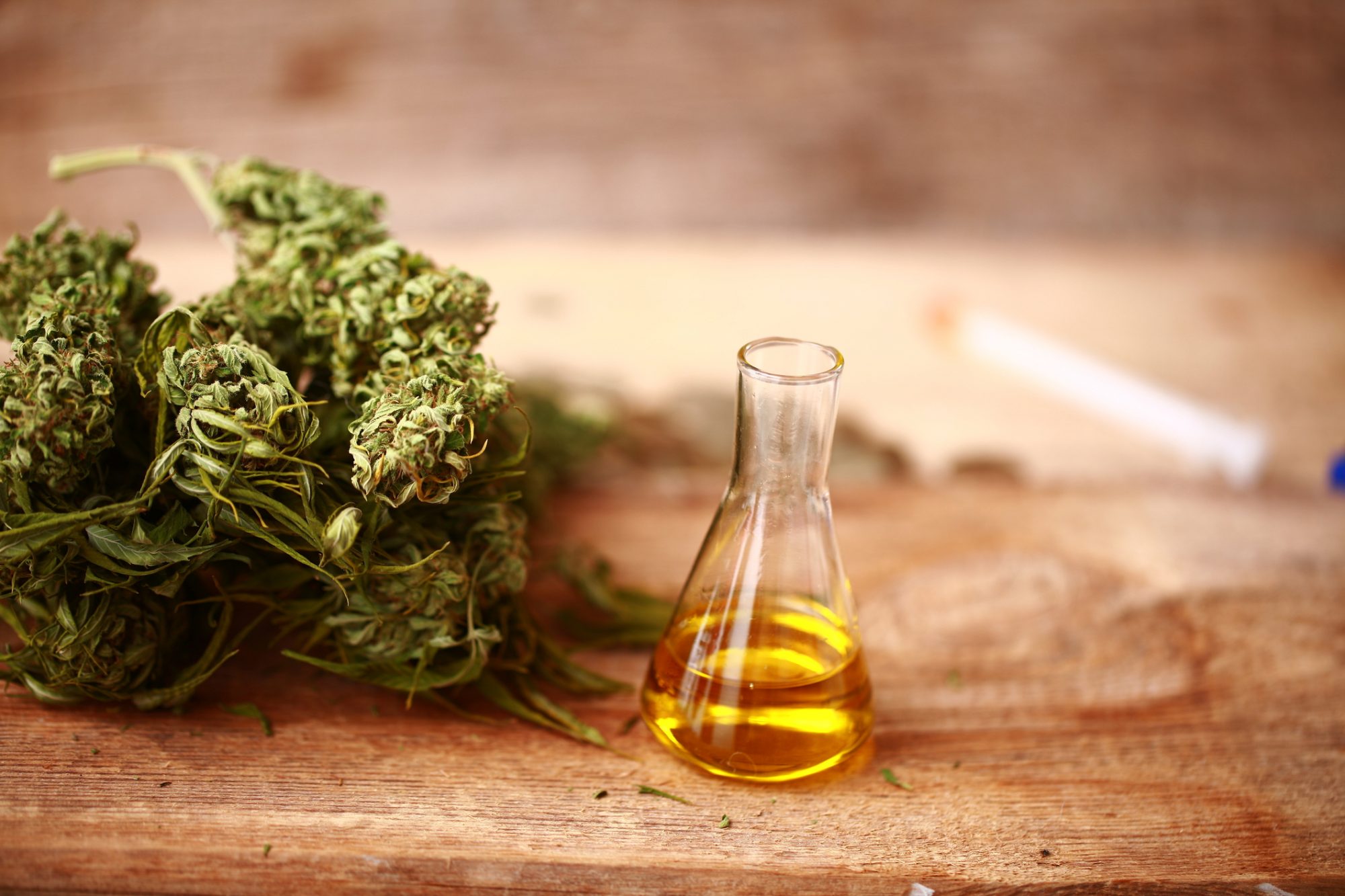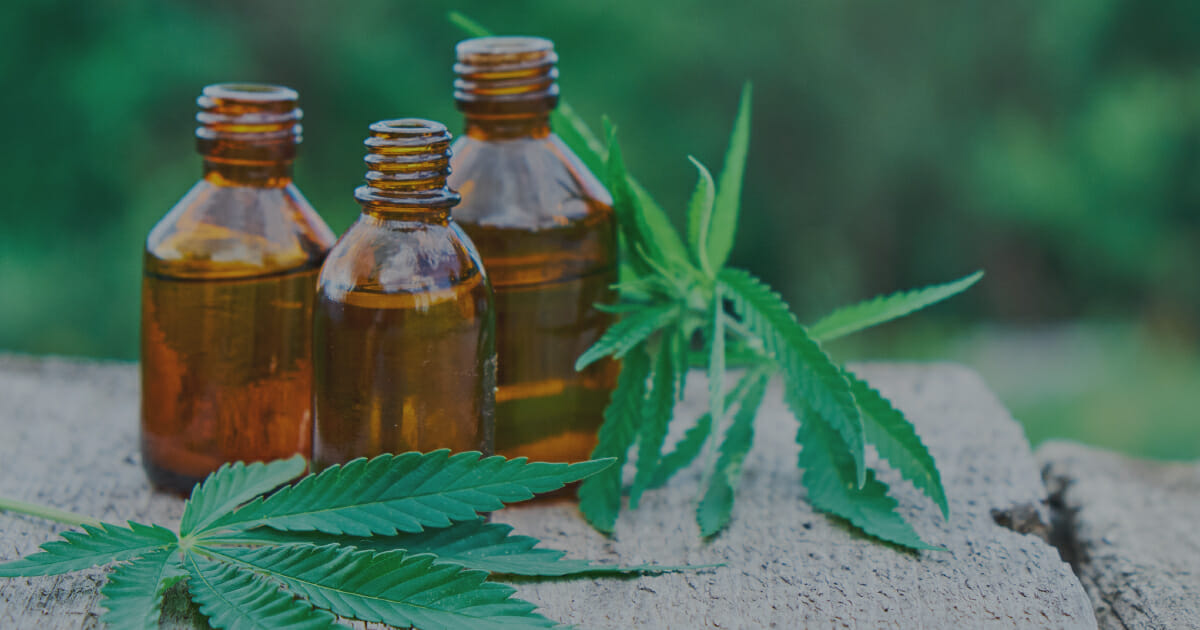The Use Of CBD- Not One Size Fits All
CBD is sometimes referred to as a wonder medicine because of its broad range of medicinal advantages. However, as patients, customers, and producers get more enthusiastic about CBD as a natural medicine, we must remember that in the use of CBD, it is not a one-size-fits-all solution and might differ from person to person. When it comes to CBD, our endocannabinoid system, and how they interact with the intricate workings of our bodies, there is still a lot to learn.
Author:Suleman ShahReviewer:Han JuMar 18, 202233.8K Shares1.3M Views

CBDis sometimes referred to as a wonder medicine because of its broad range of medicinal advantages. However, as patients, customers, and producers get more enthusiastic about CBD as a natural medicine, we must remember that in the use of CBD, it is not a one-size-fits-all solution and might differ from person to person. When it comes to CBD, our endocannabinoid system, and how they interact with the intricate workings of our bodies, there is still a lot to learn. We are still refining our understanding of the complex ways that CBD works in specific conditions and situations, and how it interacts with other cannabinoids and phytochemicals in cannabis and hemp, while we are building a better foundation of understanding every day with every scientific study and personal story that is shared with friends and practitioners.
We also need to be aware of CBD's own limits. Yes, CBD can aid with or even treat a wide range of symptoms and ailments that appear to be untreatable. This is made possible by our endocannabinoid system, its function in the body, and how CBD fits into that larger picture. CBD has some pretty amazing and astounding properties. CBD, like cannabis-based treatments in general, isn't a panacea. Cannabidiol has a lot of potential and can help a lot of individuals, but it's not without its drawbacks. Prepare yourself for the experience by keeping a level head, keeping an open mind, and having realistic expectations.
Furthermore, CBD does not work for everyone. For some, the benefits are near magical, while for others, they are non-existent. This might be because you're using CBD snake oil, you need a new product or amount, or CBD isn't working the way you expected it to in your body.
Does Using CBD Vary?
CBD usage is a highly personal and unique experience. CBD may help you with anxiety, but it may not help your closest friend with hers; yet, it may help her with her chronic pain. Or possibly a different dose is required. Alternatively, you may require a cannabis-based rather than a hemp-based treatment (or vice versa!). Perhaps pills will be more effective than a tincture for you. As you can see, CBD's effectiveness varies depending on the person, dose, source, delivery method, and condition. As a result, each treatment plan is tailored to the specific needs of each patient.
CBD isn't a one-size-fits-all drug, so use it with caution and personalize it to your unique requirements and desires. Use CBD with the respect and thoughtfulness it deserves, whether you're taking it as a daily supplement for its anti-inflammatory and neuroprotective qualities or to help control your MS-related spasticity.
What To Do Before Taking CBD
Two things should be done before you start using CBD. To begin, sit down and think about why you want to take CBD and what you want to gain from it. Later on, when you're trying to modify your treatment plan, this method will come in handy. Consider why you're interested in CBD, what you intend to gain from it, and your top priorities. For example, if you have fibromyalgiaand are looking for pain relief and better sleep, your primary objective is to be able to function during the day and sleep well at night. For starters, these details will assist you in determining which items to utilize, dosing levels, and time(s) of day.
Think about how tolerable you are to THC's effects. THC enhances and complements the efficacy of CBD, as we've already stated, and the two perform better together. THC can also be a very effective treatment for fibromyalgia-related pain alleviation and sleep issues, for example. THC could be a helpful component of your CBD-rich prescription and treatment regimen if you live in a state where medicinal cannabis is legal and have a qualifying illness.
THC's effects in greater doses aren't ideal for those who need to work or keep their thoughts clear throughout the day, so a low-THC cannabis-derived product (such an 8:1 or a 20:1 CBD:THC tincture, for example) can be the answer. THC sensitivity is quite high for some people, and any THC level is a cause for concern.
Others live in states where cannabis-derived CBD products are unavailable. CBD extracted from hemp is a viable solution in these situations!
The second step is to consult with your physician. If you are currently on any prescription medications, you may need to adjust your dose at some point. CBD may increase the availability of the medications you're taking in your body, requiring you to reduce the dose of the pharmaceutical. It's also possible that CBD isn't a good fit for you right now.
Expect your doctor to be unfamiliar with CBD or medicinal cannabis in general, so come prepared with some basic information and evidence—bring this book along to lend to them. Another alternative (unless you reside in a state without a medical cannabis program) is to use your state's medical program to identify a physician who is familiar with cannabis therapies. Whether or whether you desire to get a medical card, you can see these doctors.
And once you begin using CBD, keep in mind that it will be a trial-and-error procedure. You must pay close attention to how this drug affects you, just as you would with any other prescription. Avoid using CBD in the evening because it can make you feel more awake and aware. You could also try taking your dose once a day or splitting it into two or three smaller doses. You'll need to self-titrate (raise your dosage) gradually in order to find your own "sweet spot," the lowest amount at which you can achieve full relief and efficacy.

Finally, you will almost certainly need to try a variety of products and brands. As previously stated, hemp-derived CBD may be preferable to cannabis-derived CBD (if available to you in your state). Alternatively, you may need to try out various delivery methods. As previously stated, CBD may be used in a variety of ways, and you can tailor your dosage based on your own preferences and efficacy.
A notebook is a good way to keep track of the times you take CBD, how much of the product you took, what delivery mechanism you utilized, your physical experience, and so on.
The most important thing to remember is to relax and enjoy the process. CBD is an all-natural, nontoxic, and safe substance to work with, as previously stated—and it may surprise you! You might discover benefits you weren't expecting, or it might work even better than you expected. And if it doesn't, be confident that, regardless of any other symptoms or diseases you may have, you're getting the broad anti-inflammatory and neuroprotective effects it provides. So have a look at the next part and be ready to embark on your CBD adventure!
Finally
If you want to use CBD, you need to be cautious and aware of the risks. Always talk to your doctor about CBD, whether you are interested or already using it. Please, don't keep it from your doctor if you suspect they're anti-CBD. At the very least, your doctor can go over your prescriptions with you to ensure you don't have any drug interactions.

Suleman Shah
Author
Suleman Shah is a researcher and freelance writer. As a researcher, he has worked with MNS University of Agriculture, Multan (Pakistan) and Texas A & M University (USA). He regularly writes science articles and blogs for science news website immersse.com and open access publishers OA Publishing London and Scientific Times. He loves to keep himself updated on scientific developments and convert these developments into everyday language to update the readers about the developments in the scientific era. His primary research focus is Plant sciences, and he contributed to this field by publishing his research in scientific journals and presenting his work at many Conferences.
Shah graduated from the University of Agriculture Faisalabad (Pakistan) and started his professional carrier with Jaffer Agro Services and later with the Agriculture Department of the Government of Pakistan. His research interest compelled and attracted him to proceed with his carrier in Plant sciences research. So, he started his Ph.D. in Soil Science at MNS University of Agriculture Multan (Pakistan). Later, he started working as a visiting scholar with Texas A&M University (USA).
Shah’s experience with big Open Excess publishers like Springers, Frontiers, MDPI, etc., testified to his belief in Open Access as a barrier-removing mechanism between researchers and the readers of their research. Shah believes that Open Access is revolutionizing the publication process and benefitting research in all fields.

Han Ju
Reviewer
Hello! I'm Han Ju, the heart behind World Wide Journals. My life is a unique tapestry woven from the threads of news, spirituality, and science, enriched by melodies from my guitar. Raised amidst tales of the ancient and the arcane, I developed a keen eye for the stories that truly matter. Through my work, I seek to bridge the seen with the unseen, marrying the rigor of science with the depth of spirituality.
Each article at World Wide Journals is a piece of this ongoing quest, blending analysis with personal reflection. Whether exploring quantum frontiers or strumming chords under the stars, my aim is to inspire and provoke thought, inviting you into a world where every discovery is a note in the grand symphony of existence.
Welcome aboard this journey of insight and exploration, where curiosity leads and music guides.
Latest Articles
Popular Articles
